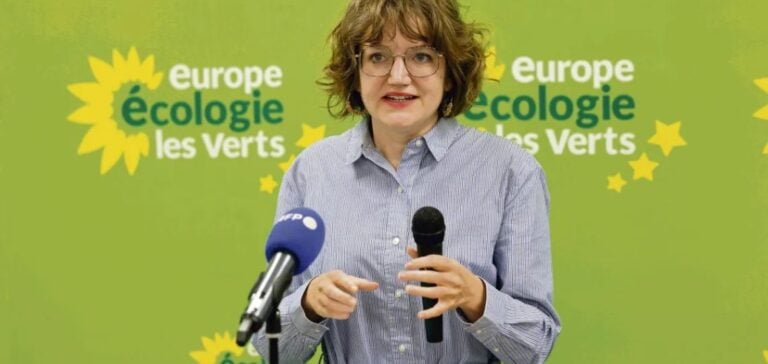Marie Toussaint, Green candidate in the European elections, calls for a European ecological sovereignty fund. The objective? “Regain strategic control” of Europe’s most polluting oil companies. It was in front of the TotalEnergies tower in La Défense that the European candidate chose to launch this proposal, on the day of the company’s centenary. A moment chosen for its symbolism, the headquarters being protected by the forces of law and order.
Introducing the Ecological Fund
Marie Toussaint, surrounded by Marine Tondelier and other environmental activists, detailed her initiative after a happening against fossil fuels. It envisages the creation of a €100 billion ecological sovereignty fund, “managed by the European Investment Bank”. The objective? Acquire a majority stake in the six “most polluting” European oil and gas companies – specifically TotalEnergies, Eni, Repsol, OMV Petrom, Orlen, Wintershall Dea – to push them out of fossil fuels and stop “fossil fuel dividends”.
The climate emergency according to Toussaint
“Today, the European Union is trying to act on its own territory, but we have a global responsibility because we are a major economic power,” Toussaint stressed. She stressed the need to halt all new investment in oil and gas, in line with the recommendations of the International Energy Agency, pointing out that “these companies are undermining living conditions on Earth”.
To finance this fund, Toussaint proposes redirecting the 330 billion euros of fossil fuel subsidies in the EU, and envisages a wealth tax dedicated to the climate. “The European treaties allow for this fund when interpreted in the right direction,” she asserts, adding that the objectives include safeguarding the planet. Marine Tondelier reinforced this argument, anticipating that this measure will be seen as essential and sensible in the future.






















